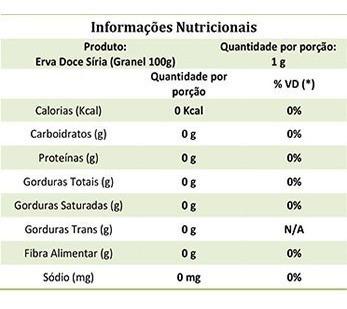
The fennel plant (Foeniculum vulgare) is a Mediterranean herbaceous plant belonging to the Apiaceae family, whose cultivation is widespread throughout the country.
Rich in minerals, vitamins and antioxidants, fennel has numerous beneficial properties for health. Let's find out better.
- Fennel description
- Properties and benefits of fennel
- Calories and nutritional values of fennel
- Use in the kitchen
- Side effects of fennel
Fennel description
With a sweet flavor and crunchy texture, fennel can be eaten raw or cooked and is very useful for promoting satiety and digestion.
There are several varieties, including that of wild fennel, also called fennel, of which i semi, with a sweet but pungent flavor, similar to that of aniseed. There are many properties of wild fennel.
Properties and benefits of fennel
Mainly known as purifying and digestive, but, in reality, there are numerous properties of fennel.
Let's see some:
- It is rich in antioxidants.
- It has anti-inflammatory activity.
- Contrasts aging and related diseases.
- Promotes the sense of satiety.
- Promotes heart health.
- Reduces the risk of cancer.
- Promotes milk production in lactating women.
Calories and nutritional values of fennel
100 g of fennel provide:
- 9 kcal
- 1,2 g protein
- 0 g fat
- G carbohydrates 1
- Sugars 1 g
- Fiber 2,2 g
Discover the properties and use of fennel mother tincture
Use in the kitchen
Fennel in cooking is very versatile. It can be used raw, cooked or in the form of seeds.
the satiating properties, it is useful to consume raw fennel before main meals, in order to avoid excessive meals. For example, it can be used to make a vegetable dip to be consumed as an appetizer together with other raw vegetables, such as celery stalks and carrots.
For a tasty side dishinstead, you can opt for fennel au gratin in the oven or browned on a hot plate and then seasoned with oil, salt and spices.
Alternatively, fennel seeds can be used (wild fennel) to give an extra touch a soups, soups o main courses of meat.
Furthermore, the use of infusions is very common or fennel tea, especially after more abundant meals. Indeed, among the properties of wild fennel, we find the digestive one.
Side effects of fennel
The fennel it is generally safe and has no particular side effects.
However, as with all foods, it is advised not to abuse it and seek the advice of your doctor in case of drug therapy and pregnancy.
The properties, uses and contraindications of fennel essential oil
-
The therapeutic properties of fennel
-
Fennel among foods to purify the liver
-
Fennel au gratin, recipe in two variations
-
Three salads with fennel
Bibliography and sources
Foeniculum vulgare Mill: A Review of Its Botany, Phytochemistry, Pharmacology, Contemporary Application, and Toxicology, BioMed research international
Anethole and Its Role in Chronic Diseases, Advances in experimental medicine and biology
D-limonene exhibits anti-inflammatory and antioxidant properties in an ulcerative colitis rat model via regulation of iNOS, COX-2, PGE2 and ERK signaling pathways, Medicine Reports
Fennel (Foeniculum vulgare) and Fenugreek (Trigonella foenum-graecum) Tea Drinking Suppresses Subjective Short-term Appetite in Overweight Women, Clinical nutrition research
Dietary fibre intake and risk of cardiovascular disease: systematic review and meta-analysi, British medical journal
Anethole suppressed cell survival and induced apoptosis in human breast cancer cells independent of estrogen receptor status, Phytomedicine
Pharmacological Overview of Galactogogues, Veterinary medicine international
Developing a Molecular Roadmap of Drug-Food Interactions, PLoS computational biology
Evaluation of the teratogenicity of fennel essential oil (FEO) on the rat embryo limb buds culture, Toxicology in Vitro
Food Composition Tables, Council for Agricultural Research and Agricultural Economics Analysis (CREA)


























